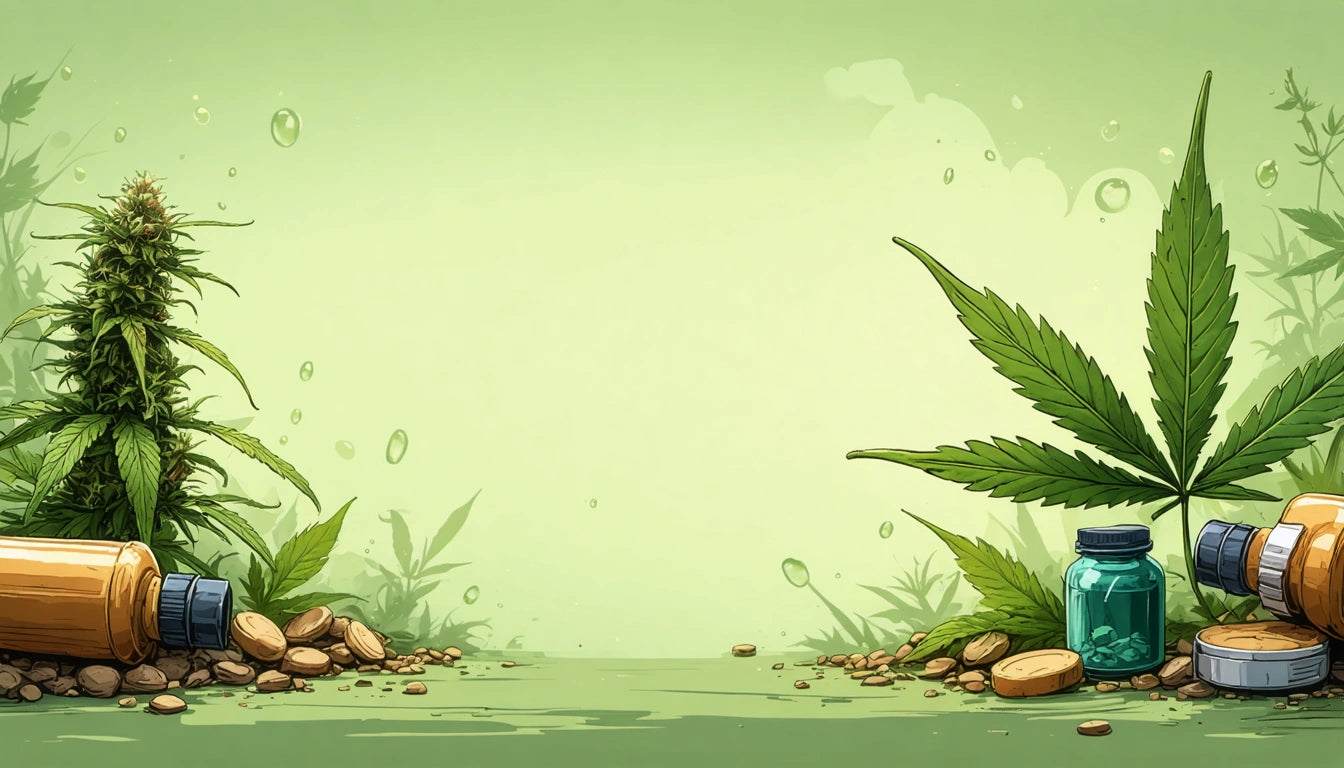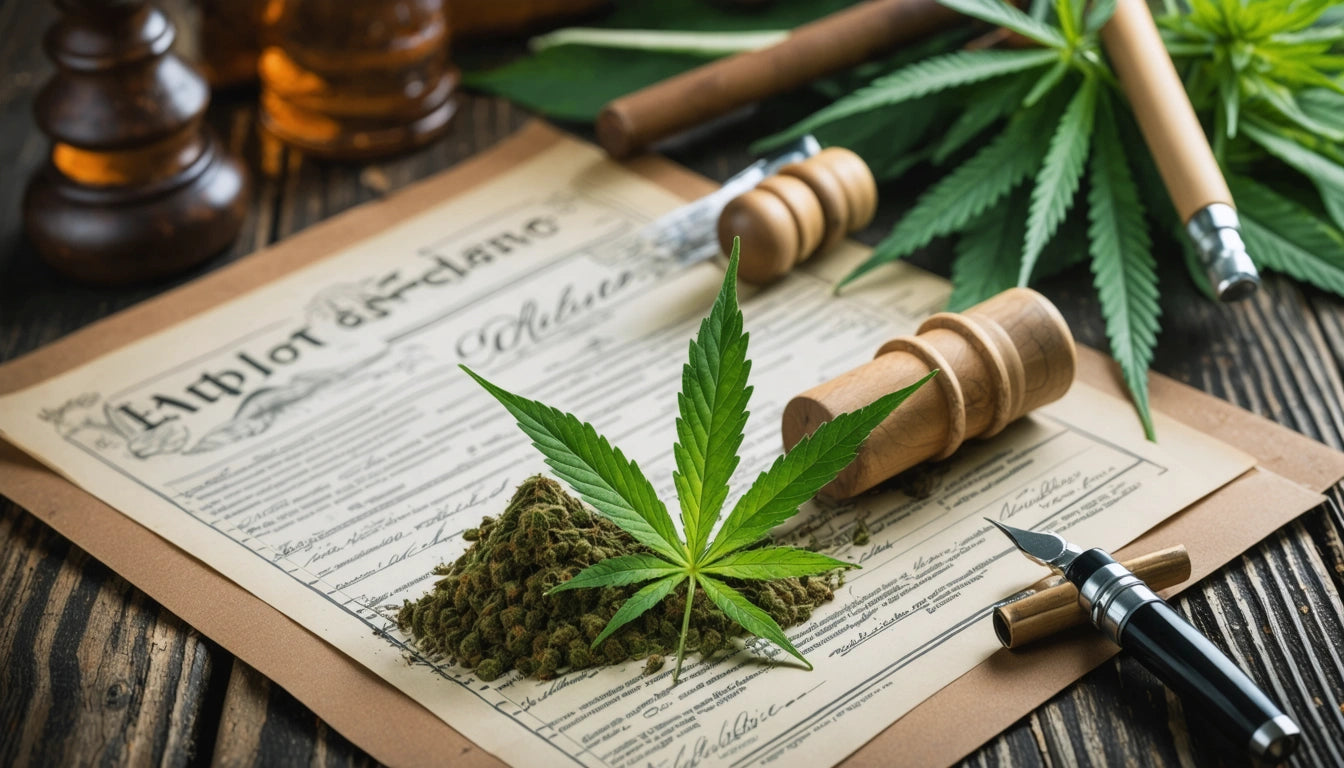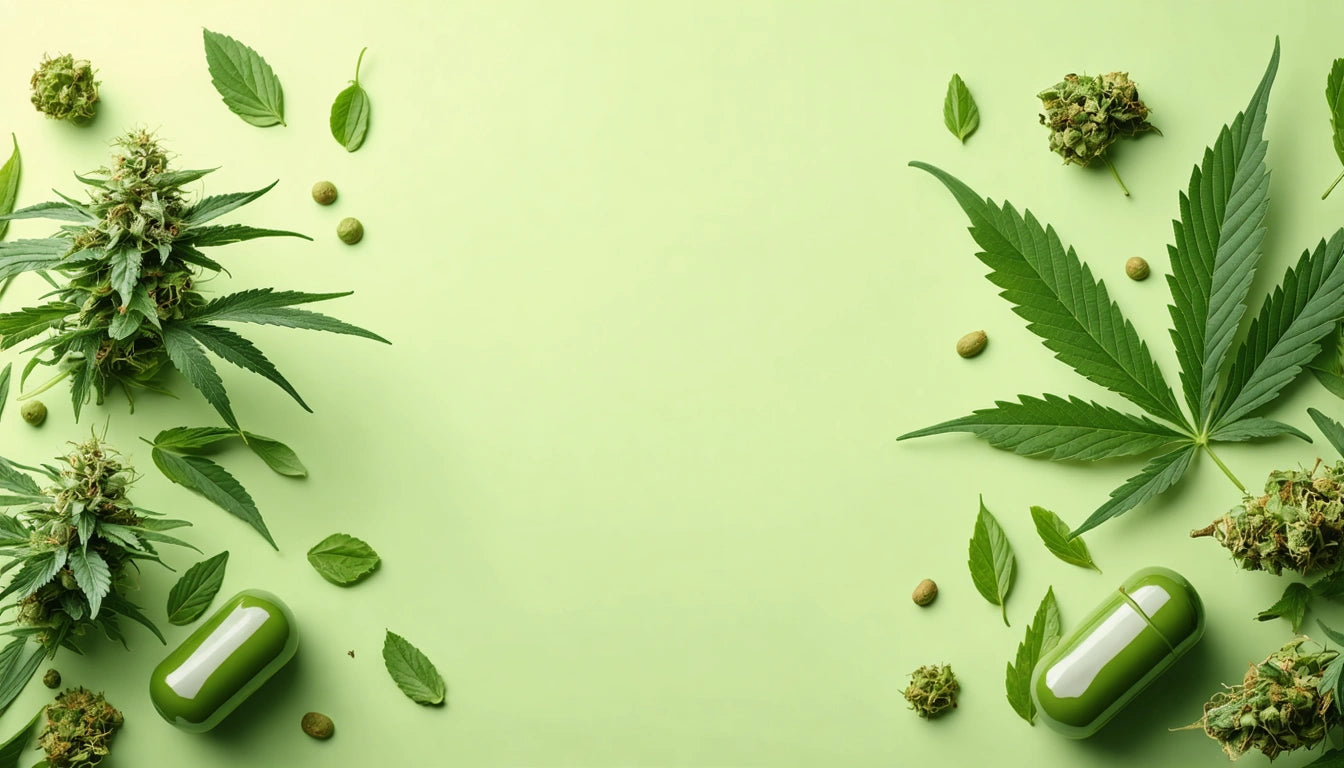Table of Contents
As cannabis becomes more mainstream, new consumers often have questions about its effects, safety, and legality. This guide addresses the most common questions to help you navigate the complex world of cannabis with confidence and knowledge.
Cannabis Basics: Understanding THC, CBD, and Terpenes
Cannabis contains hundreds of compounds, but most consumers focus on a few key components that drive its effects.
THC vs. CBD: What's the Difference?
THC and CBD are distinctly different cannabinoids with varying effects. THC (tetrahydrocannabinol) produces the psychoactive "high" associated with cannabis, while CBD (cannabidiol) offers potential therapeutic benefits without intoxication. Products can contain either compound exclusively or various ratios of both.
Understanding Terpenes
Terpenes are aromatic compounds that give cannabis its distinctive smell and contribute to its effects. These compounds work alongside cannabinoids to create what's known as the "entourage effect," potentially enhancing therapeutic benefits. Common terpenes include myrcene (relaxing), limonene (uplifting), and pinene (alertness).
Indica, Sativa, and Hybrid: What Do They Mean?
The terms indica, sativa, and hybrid traditionally describe different cannabis plant types, but modern understanding has evolved. Rather than relying solely on these classifications, consumers should focus on cannabinoid content, terpene profiles, and personal experience when choosing products.
Consumption Methods and Effects
The way you consume cannabis significantly impacts the onset, intensity, and duration of effects.
How Long Does a Cannabis High Last?
The duration of cannabis effects varies by consumption method. Inhaled cannabis typically produces effects within minutes that peak within 30 minutes and last 2-3 hours. Edibles take 30-90 minutes to begin working but can last 4-8 hours or longer.
Microdosing Cannabis
Microdosing involves consuming very small amounts of cannabis to achieve subtle effects without significant impairment. This approach allows users to experience potential benefits while maintaining functionality throughout the day.
Consumption Tools and Accessories
Various tools enhance the cannabis experience. For flower consumers, quality grinders help break down cannabis into a consistent texture for more even burning and better vapor production. Other accessories like pipes, vaporizers, and storage containers can also improve your experience.
Safety and Health Considerations
Understanding potential risks helps consumers make informed decisions about cannabis use.
Can You Overdose on Cannabis?
While cannabis cannot cause a fatal overdose, consuming too much can lead to uncomfortable experiences including anxiety, paranoia, increased heart rate, and disorientation. These symptoms typically resolve without medical intervention as the effects wear off.
Cannabis and Potential Addiction
Research indicates that approximately 9% of cannabis users may develop cannabis use disorder, characterized by difficulty controlling use despite negative consequences. Risk factors include frequent use, high potency products, and beginning use during adolescence.
Mixing Cannabis with Other Substances
Combining cannabis with alcohol can intensify impairment and increase risk of adverse effects. Cannabis and caffeine interactions vary by individual but may increase anxiety in some users. It's generally advisable to understand how cannabis affects you before combining it with other substances.
Legal Considerations and Proper Storage
Navigating legal issues and maintaining product quality require attention to detail.
Traveling with Cannabis
Despite state-level legalization, cannabis remains federally illegal in the United States. This means crossing state lines with cannabis products, even between two legal states, violates federal law. Air travel with cannabis is prohibited regardless of origin or destination.
Proper Storage Methods
To maintain potency and freshness, store cannabis in airtight containers away from light, heat, and humidity. Glass jars with humidity control packs work well for flower, while concentrates should be kept in silicone or glass containers in cool locations.
Does Cannabis Expire?
While cannabis doesn't "go bad" in the traditional sense, it does degrade over time. THC converts to CBN (a less psychoactive cannabinoid), terpenes evaporate, and texture changes. Properly stored cannabis can maintain quality for 6-12 months, though potency gradually diminishes.
Making Informed Decisions About Cannabis Use
As the cannabis landscape evolves, staying informed helps consumers make choices aligned with their needs and values.
When exploring cannabis, start with low doses and gradually increase as needed. Pay attention to product labels, which provide crucial information about potency, ingredients, and testing. Understanding how to interpret this information empowers you to select products that match your desired experience.
For those interested in medical applications, discussing cannabis with healthcare providers can provide personalized guidance. Many doctors are increasingly knowledgeable about cannabis and can help integrate it into existing treatment plans when appropriate.
As research continues and regulations evolve, staying curious and maintaining an evidence-based approach to cannabis will serve consumers well in navigating this complex but promising field.











Leave a comment
All comments are moderated before being published.
This site is protected by hCaptcha and the hCaptcha Privacy Policy and Terms of Service apply.